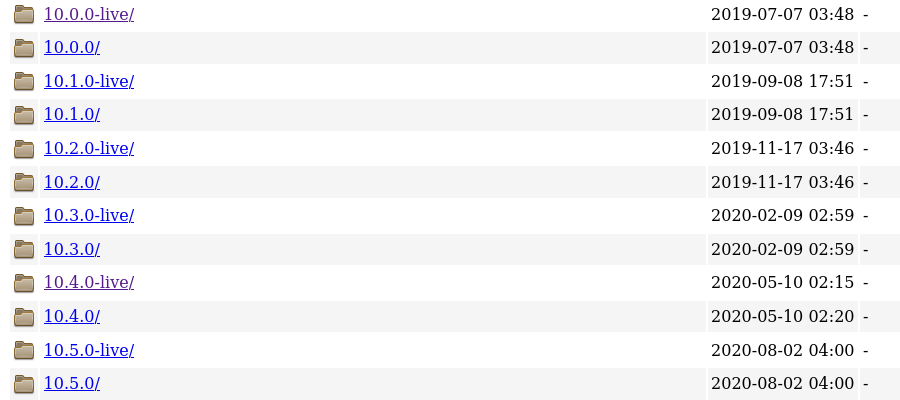Writeup DG’hAck: Shadowmallet
This challenge starts with a file called shadowmallet. We’re asked to help an administrator whose server detected an abnormal activity.
The file command doesn’t give us anything:
$ file shadowmallet
shadowmallet: data
But searching for the first few bytes (53ff 00f0 53ff 00f0 53ff 00f0 53ff 00f0) of the file online quickly reveals it’s a memory dump. Let’s use volatility!
$ volatility -f shadowmallet imageinfo
Volatility Foundation Volatility Framework 2.6.1
INFO : volatility.debug : Determining profile based on KDBG search...
Suggested Profile(s) : No suggestion (Instantiated with Linuxdebiancustomx64)
AS Layer1 : FileAddressSpace (/home/vivescere/Projects/dghack/shadow-mallet/shadowmallet)
PAE type : No PAE
DTB : -0x1L
No dice with the default profiles. We’ll have to create a custom one.
Creating the profile⌗
First, let’s find out the linux version (I guessed that it was a linux machine):
$ strings shadowmallet | grep -i 'linux version'
0045 Raptor 4000-L [Linux version]
004a Raptor 4000-LR-L [Linux version]
Nov 9 17:30:13 contrib-buster kernel: [ 0.000000] Linux version 4.19.0-9-amd64 (debian-kernel@lists.debian.org) (gcc version 8.3.0 (Debian 8.3.0-6)) #1 SMP Debian 4.19.118-2 (2020-04-29)
Nov 9 17:30:13 contrib-buster kernel: [ 0.000000] Linux version 4.19.0-9-amd64 (debian-kernel@lists.debian.org) (gcc version 8.3.0 (Debian 8.3.0-6)) #1 SMP Debian 4.19.118-2 (2020-04-29)
Nov 9 17:30:13 contrib-buster kernel: [ 0.000000] Linux version 4.19.0-9-amd64 (debian-kernel@lists.debian.org) (gcc version 8.3.0 (Debian 8.3.0-6)) #1 SMP Debian 4.19.118-2 (2020-04-29)
Raptor 4000-L [Linux version]
Raptor 4000-LR-L [Linux version]
Linux version 4.19.0-9-amd64 (debian-kernel@lists.debian.org) (gcc version 8.3.0 (Debian 8.3.0-6)) #1 SMP Debian 4.19.118-2 (2020-04-29)
Linux version 4.19.0-9-amd64 (debian-kernel@lists.debian.org) (gcc version 8.3.0 (Debian 8.3.0-6)) #1 SMP Debian 4.19.118-2 (2020-04-29)
SWIMS: Linux Version: %04X
MESSAGE=Linux version 4.19.0-9-amd64 (debian-kernel@lists.debian.org) (gcc version 8.3.0 (Debian 8.3.0-6)) #1 SMP Debian 4.19.118-2 (2020-04-29)
Now, finding the right image is a bit tricky. I tried three ISOs before finally finding the right one. At first, seeing Debian 8.3.0-6. I thought that it was a Debian 8 machine. But this is the version of debian on which gcc was compiled.
To find the right ISO, you had to notice:
contrib-buster, Buster being the codename for Debian 102020-04-29, which gives a pretty good hint about what version to use
Here are the available Buster images:
The closest one to the date is debian 10.4.0, which is the image we’re going to use. The next step is to download the ISO (live version), boot it in a VM, and generate the profile:
$ sudo su
# We can check that we have the right version
$ dmesg | head -n 1
[ 0.000000] Linux version 4.19.0-9-amd64 (debian-kernel@lists.debian.org) (gcc version 8.3.0 (Debian 8.3.0-6)) #1 SMP Debian 4.19.118-2 (2020-04-29)
# And then generate the profile
$ apt install volatility-tools build-essential zip
$ cd /usr/src/volatility-tools/linux
$ make
$ zip debian_custom.zip module.dwarf /boot/System.map-4.19.0-9-amd64
After getting the profile back to our host system, we have to load it:
$ cp debian_custom.zip /usr/lib/python2.7/site-packages/volatility/plugins/overlays/linux/debiancustom.zip
$ volatility --info | grep debian
Volatility Foundation Volatility Framework 2.6.1
Linuxdebiancustomx64 - A Profile for Linux debiancustom x64
Analyzing the image⌗
At first glance, there doesn’t seem to be anything suspicious going on:
- no weird processes are running
- no suspicious files are present
- reading the logs don’t reveal anything… or at least I thought so
I’m not sure how we were supposed to find this, but after trying a lot of the available commands, I discovered:
$ volatility --profile=Linuxdebiancustomx64 -f shadowmallet linux_hidden_modules
Volatility Foundation Volatility Framework 2.6.1
Offset (V) Name
------------------ ----
0xffffffffc04a6000 netfilter
0xffffffffc0578300 qni
The netfilter module may be interesting, so let’s dump it:
$ volatility --profile=Linuxdebiancustomx64 -f shadowmallet linux_moddump -b 0xffffffffc04a6000 -D .
Volatility Foundation Volatility Framework 2.6.1
Wrote 668514 bytes to netfilter.0xffffffffc04a6000.lkm
$ file netfilter.0xffffffffc04a6000.lkm
netfilter.0xffffffffc04a6000.lkm: ELF 64-bit LSB relocatable, Intel 80386, version 1 (SYSV), BuildID[sha1]=43d8d77459d809b0337cbd723733ac10f8b582e8, not stripped
$ strings -n 10 netfilter.0xffffffffc04a6000.lkm | head -n 10
4.19.0-9-amd64
[]A\A]A^A_
[]A\A]A^A_
YES SHA1 is CORRECT
B3tterR=H1deMebeTT3r=then!Right?
hook.cold.5
__func__.5155
__this_module
SHA1Update
cleanup_module
And we find the flag, B3tterR=H1deMebeTT3r=then!Right?. I guess we were supposed to find this using dmesg:
$ volatility --profile=Linuxdebiancustomx64 -f shadowmallet linux_dmesg | grep netfilter
Volatility Foundation Volatility Framework 2.6.1
[1605821327.1] netfilter: loading out-of-tree module taints kernel.
[1605836480.1] netfilter: module verification failed: signature and/or required key missing - tainting kernel
Or maybe, since I see the string YES SHA1 is CORRECT, using a SHA1 hash?
